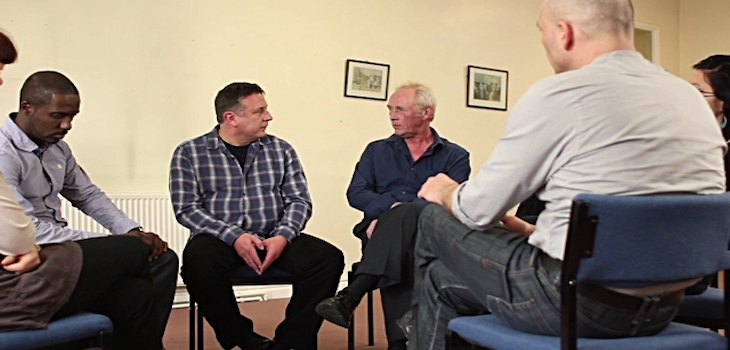Infidelity
-
Has your partner turned away recently only to turn towards someone or something else?
-
Do you ever feel crazy when your partner denies an infidelity despite discovery?
-
Is it them you blame for the hurt or yourself for allowing yourself to stay?
-
Are your feelings of vulnerability, hurt, shame and betrayal too much for you to bear?
-
Are you discouraged that you and your partner will never be able to get past the affair and move onto a happy and safe romantic life together?
Infidelity: Breaking the Betrayal Bond
You are not alone! Shame, hurt, anger and feeling lost, vulnerable and alone are all common experiences when the safety in which we once lived becomes fractured and often shattered.
Infidelity is a pervasive problem today. Approximately one in two couples will experience a sexual betrayal; both men and women cheat. An ever-expanding opportunity for constant stimulation by the media has triggered peoples’ primitive desires. Married people often believe that gratification is not available inside but outside the marriage. Affairs, adultery, addiction and cybersex are all part of our present culture. There is an increasing sense of entitlement and a failure to have realistic expectations.
There is no universal definition of infidelity. Nor is there a universal definition of pain and heartbreak. What constitutes a betrayal is often defined by the betrayed. Betrayal is a breach of trust, a breaking of the fragile bond that holds together two people. Infidelity can take many forms. Sexual adultery might include anything from sexting, viewing online pornography, secret activity on a dating or extramarital affair app, a massage with a happy ending and flirting to sex with someone outside the couple-ship. Ester Perel, LMFT, New York City sex therapist, calls infidelity a crisis of identity. It is a way to find lost parts of ourselves and to feel alive and entitled. It threatens our sense of self and causes us to question not just the bond with our partner but who we are. She says, “men cheat to avoid intimacy, women cheat to achieve intimacy”.
Betrayals come in other forms as well. Secrets and lies surround addictions and financial activities. While there are common themes, what is considered a betrayal may vary from one person or couples to another. Stepping outside an agreement between two or more people is a betrayal; it is a boundary violation.
Healing After an Affair
Affairs don’t dictate the end of the relationship. In fact, very often, they are a wake-up call that a relationship is indeed over but only in the way it has been—that there can be a different space for a new and improved connection. An affair can become a springboard for a transformational experience. This excludes couples for whom an alternative lifestyle is their choice.
Seen as a crisis to the self and/or the relationship, it presents an opportunity to leave an unhealthy connection and move into a place of healing and building anew. For resolution to the crisis, both parties need to, both individually and together, understand and come to terms with the legacy of the affair. Building a healthy future narrative based on healing is the goal. For some couples their connection remains, but it is based on anger and resentment; for others, they move past the secrets and lies, but the betrayal lingers, equivalent to a “dry-drunk” in the recovery world. Yet, for others still, the crisis represents a catalyst for real change—with a crisis we exit in a way that is different than when we entered; we transform.
Dr. Winter has helped many couples move through and heal from betrayal. Using her unique combination of specialized training in sexology, sex and process or behavioral addictions, couple’s skills, trauma recovery and mindfulness and eastern philosophies, Dr. Winter helps couples heal betrayal wounds, restore their trust and connection, and redefine a new long-term intimate and monogamous relationship.
Rebuilding Trust and Formal Disclosure Work
Dr. Winter understands the shame and suffering from the impact of betrayal trauma in the context of an affair, multiple affairs and addictions for both the addict and the partner.
In most cases the truth is revealed in pieces—that is, in a staggered disclosure, wherein just enough information is revealed by the infidel or addict that they believe will satisfy the partner at that moment. In this way they can continue the lie as well as the behavior.
Formal or Therapeutic disclosure is a structured process designed to promote healing for each party and the relationship. This process bore out of the experience of countless partners who experienced disclosure for the sole purpose of their disloyal spouse to ‘purge’ or come clean without any sense as to how the information was to be received. Alternatively, both parties are educated and prepared for their roles throughout, which provides a space for transparency and healing. It is not simply a confessional; it is a several piece process that takes considerable preparation and time. Proper therapist training is important so as to not re-traumatize the partner in the process.
Formal disclosure work is not done at the outset—it is recommended that a couple wait at least 90 days and in some cases until one year into treatment. It is not done alone but rather in the presence of a qualified therapist(s). In the end the couple must leave the dream of what was and create a new and intimate connection. Dr. Winter is trained in this process and can help you navigate through grief and betrayal and redefine your relationship.
Infidelity and Out of Control Sexual Behavior
When someone turns away in a relationship they will often turn towards something or someone else. Sometimes that turn results in an addiction—that is, something that cannot be stopped despite the impact it has on the person and their life.
Sex addiction-induced trauma or complex partner trauma, for example, frames the trauma to the partner as the result of the actions of the addict and his/her behaviors. Considered to be post-traumatic stress disorder, the partner may experience anxiety, depression, betrayal, helplessness, panic and obsessive truth-seeking, loss of trust in the self, painful intrusive thoughts and images when awake and asleep, and humiliation and shame. Healing for the partner is equally important as it is for the one struggling with the compulsion or addiction. Partner and betrayal trauma apply to other addictions as well including cyber or digital addiction, eating and exercise disorders and money and work disorders.
Dr. Winter understands the stress and constant re-traumatization via intrusive thoughts and images, staggered information and attempts at healing by partners. She is prepared to help you through the process of healing the wounds and sometimes crippling pain, reclaiming yourself and re-establishing yourself in a healthy relationship.
Please check out and read what others are saying about Dr. Winter’s GROUPS for sex, porn, and love addiction as well as two groups for betrayed partners.
What Stands in The Way of Your Healing?
“If I share the truth, I’m convinced that my spouse will leave me.” . . . It is not uncommon for partners to express that on one hand, they want to hear everything (that is helpful for healing), yet if their partner engaged in a particular behavior, like intercourse, that they will leave. This is not helpful to the recovery process and is addressed in treatment. It is important to create a safe space in which to speak and be heard as well as to hear and to process. When both parties are committed to the relationship, the work can be done.
“My partner has promised several times he will stop yet he doesn’t.” . . . The process of change takes time, transparency and help from a competent professional and support community. In order to come clean, one has to be able to face themselves, their developmental trauma and attachment issues and be willing to engage in a new way of being. This applies to the partner as well. The process can be painful yet life-changing.
“I’m embarrassed that my partner’s infidelities have exceeded half of our marital life and I didn’t know until now.” . . . Shame and humiliation are not uncommon, but they need not define you forever. It is only through the confrontation of this experience that our move through the realities of our life and creates a new narrative.




